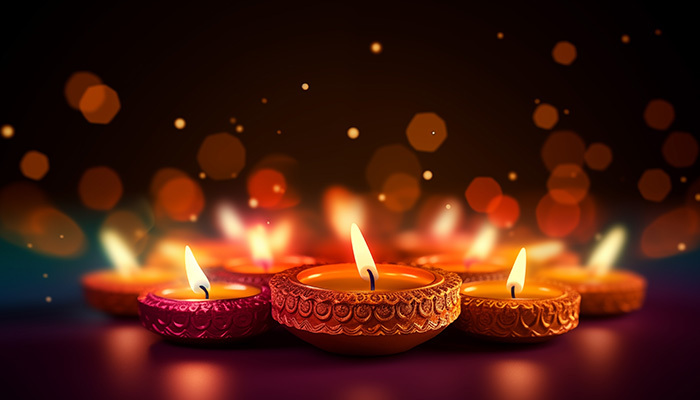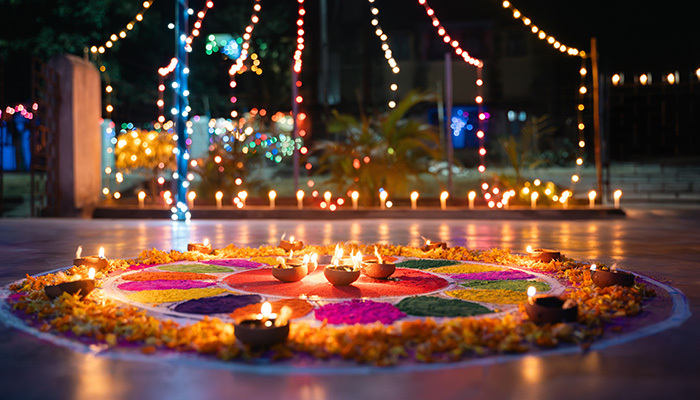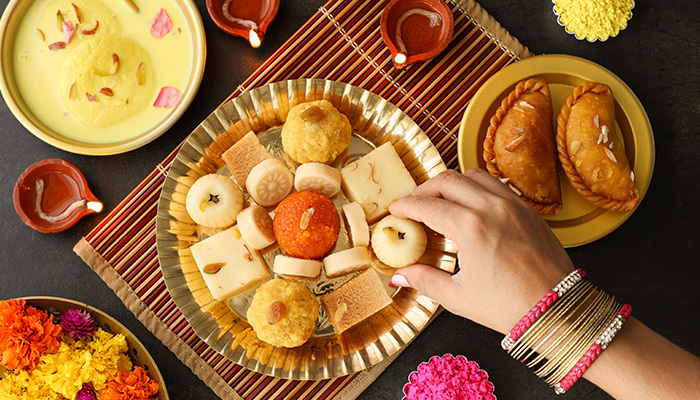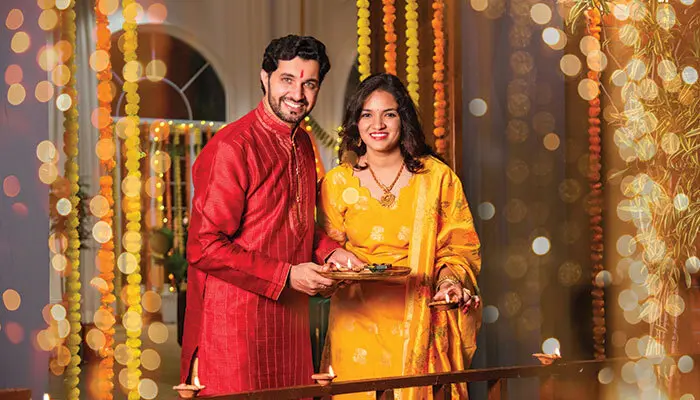9 Diwali Traditions You Should Know About
In India, as monsoon season ends, festival season begins. At the core of these celebrations is Diwali, the Festival of Lights. Celebrated by Hindus, Sikhs, and Jains, Diwali is a time of joy, spirituality, and community.
For Hindus, it honours Lord Rama’s return to Ayodhya after 14 years in exile and his victory over the demon king Ravana. For Sikhs, it marks Guru Hargobind Singh’s release from imprisonment and his victorious return to Amritsar. For Jains, it celebrates Lord Mahavira’s spiritual enlightenment.
Yet Diwali carries one universal message: the victory of light over darkness, knowledge over ignorance, and good over evil. Today, it is celebrated not only in India but across the world, in countries such as Fiji, Guyana, Mauritius, Singapore, Malaysia, Nepal, and Trinidad.
Traditions That Light Up Diwali
Diwali is truly a feast for the senses - streets sparkle, homes glow, and kitchens are busy, with every ritual inviting prosperity, warding off negativity, and strengthening bonds. Here are 9 traditions that define this iconic festival:
1. Preparing the Home: Cleaning & Decorating
Weeks before Diwali, families thoroughly clean, declutter, repaint, and decorate their homes. A bright, welcoming environment is believed to attract Goddess Lakshmi, the deity of wealth and prosperity.
2. Shopping Sprees and New Festive Outfits
No Diwali celebration is complete without shopping. Families purchase gifts, homeware, and new outfits - often traditional kurtas, sarees, or lehengas. Wearing brand new, fresh clothes symbolises joy and renewal.
3. Lighting the Way with Diyas and Lanterns
Light is the soul of Diwali. Homes and streets glow with diyas (oil lamps), lanterns, and fairy lights. Each lamp is not just decoration - it represents guidance, hope, and the triumph of good over evil. Communities often collaborate to establish illuminated streets and public displays, making Diwali a visual extravaganza across India.

4. Rangoli: Art on the Doorstep
Courtyards and doorsteps are decorated with rangoli, - intricate patterns created from powdered limestone, coloured sand, rice, or flower petals. These colourful, kaleidoscopic designs are a symbol of positivity, serving to welcome deities, guests and keep evil spirits at bay. Families often compete or collaborate on elaborate designs, making it a lively, interactive part of the celebrations.

5. Lakshmi Puja: Prayers for Prosperity
On the main night of Diwali, the third day of the five-day festival, families perform Lakshmi Puja, offering flowers, fruits, sweets, and prayers to the goddess of wealth. Accompanied by hymns, mantras, and incense, this ritual seeks blessings for prosperity, wisdom, and happiness in the coming year. Some regions, like Bengal, focus more on Kali Puja, praying to Goddess Kali for protection and strength.
6. A Feast of Flavours and Sweet Treats
Food is central to Diwali celebrations. Mithai (sweets) like laddus, barfis, gulab jamun, and jalebis are prepared and shared with family, friends, and neighbours. Savoury treats are items such as samosas, pakoras, and puris, and vegetarian feasts often feature paneer dishes, curries, and lentils. Sharing meals is a gesture of love and togetherness, reinforcing bonds as much as delighting the taste buds!

7. Fireworks and Sparkling Skies
People light fireworks, such as sparklers and rockets to illuminate the night sky with bright colours and sounds. The loud noises are believed to ward off evil spirits, while the bright lights represent the return of Lord Rama and the joy of the celebration. Many people enjoy community displays or family fireworks at home.

8. The Tradition of Gifts and Giving
Exchanging gifts is a revered Diwali tradition. Boxes of sweets, dried fruits, jewellery, clothes, and festive hampers are shared among family, friends, and neighbours, strengthening bonds and spreading happiness. Many also send gifts to distant relatives or donate to charity, reflecting generosity and compassion.
9. Games of Chance and Good Fortune
In many households, playing cards or other traditional games during Diwali is considered auspicious. It is believed that luck and prosperity follow those who engage in playful, friendly competitions, making games a fun and symbolic part of the celebration.
The Meaning of Diwali
More than just lights, sweets, and fireworks, Diwali is a celebration of renewal, optimism, and the triumph of good over evil. It unites people across the globe, reminding everyone that light, knowledge, and love are the ultimate forces that guide us through life’s darkness.


